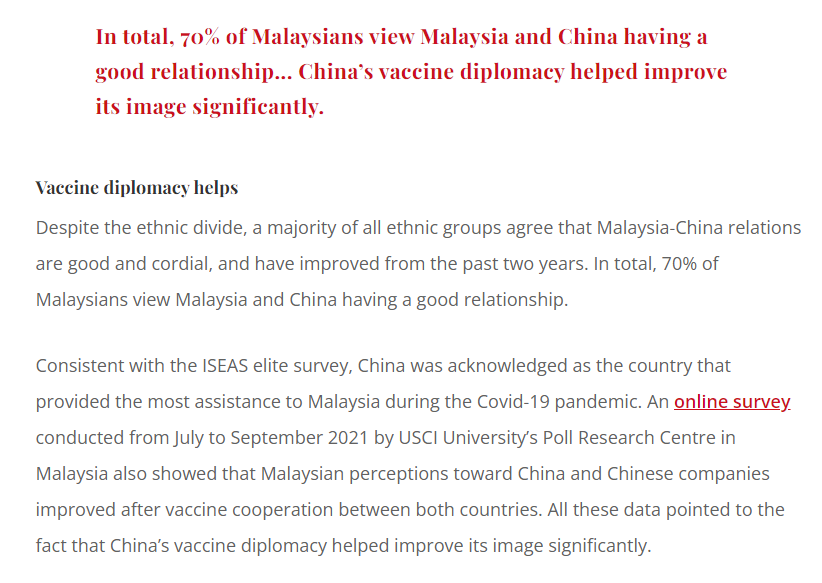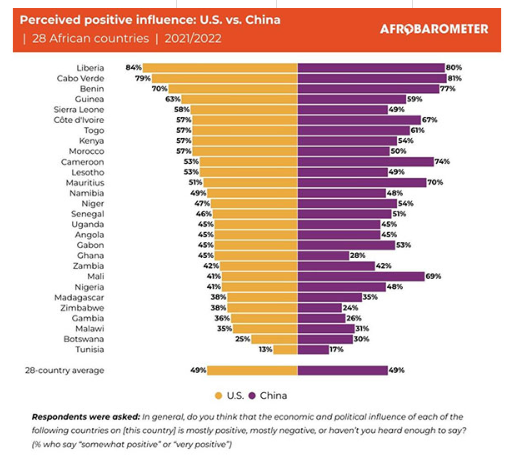Geht nicht, dafür muss man bei Twitter X angemeldet sein, du müsstest es also hier den Thread kopieren damit es alle lesen können.
Geht leider nicht schöner:
"Great question! It is indeed useful to examine China's efforts to enhance its public image and help people in the regions of the world where it spends resources in pursuit of those goals.
Let's take a brief look at seventeen (17) examples:
Kenya: Chinese soft power/goodwill initiatives in Kenya are extensive.
This has included everything from rice for famine relief:
kenyanews.go.ke
...to equipment donations to schools:
english.scio.gov.cn
...to military vehicles:
chinaglobalsouth.com
China Donates Trucks, Non-Lethal Equipment to the Kenya’s Military https://chinaglobalsouth.com
Chinese business community donates equipment to slum school in Kenya http://english.scio.gov.cn
Egypt: In the last few years especially, Egypt has become a new destination for Chinese soft power initiatives, with donations of energy-efficiency equipment:
esi-africa.com
...medical supplies:
elsewedyelectric.com
...and books:
english.scio.gov.cn
Medical Donations Supplied to Hospitals across Egypt by China - https://www.elsewedyelectric.com
China cultural center donates books to Egypt's Alexandria library | http://english.scio.gov.cn
China gifts Egypt energy-saving equipment for green transformation https://www.esi-africa.com
Chile: China works hard on its relationship with Chile.
This has surely been helped by donations for forest fire support:
fundacionandresbello.org
...as well as tons of medical support for LatAm in general during Covid:
aa.com.tr
The Red Cross Society of China donates US$100,000 to help https://fundacionandresbello.org
China makes massive medical donations to Latin America https://www.aa.com.tr
Malaysia: Vaccine donations during Covid were clearly quite important for helping China's image in Malaysia.
(this is broadly true for most of ASEAN in general)

China’s divided image in Malaysia https://www.thinkchina.sg
Philippines: Despite a tenuous relationship, China has made considerable efforts to sweeten relations with PH, with donations of fertilizer:
manilatimes.net
...military construction equipment
benarnews.org
...and rice
reliefweb.int
President: China's urea donation a 'friendly gesture' https://www.manilatimes.net
China Donates Military, Construction Equipment to Philippine Defense Department https://www.benarnews.org
DSWD receives complete shipment of rice donation from China - https://reliefweb.int
Nigeria: China's relationship with Nigeria is likely its strongest in Africa, perhaps related to how they donated free solar panels
esi-africa.com
...an ariculturual demo center
farmersreviewafrica.com
...and an entire military patrol vessel
radionigeria.gov.ng
China and Nigeria join forces to light up rural Nigeria https://www.esi-africa.com
China donates patrol boats to Nigerian Navy - FRCN HQ https://radionigeria.gov.ng
China donates agriculture demonstration centre to Nigeria https://farmersreviewafrica.com
...needless to say, China is not without the resources or will to be a good friend, when it chooses to be. And these were all just examples of DONATIONS.
I haven't even touched education exchange, lending, military support, debt forgiveness...
Debt Relief — China Africa Research Initiative http://www.sais-cari.org
And, with the exception of the Philippines, those countries mentioned all have decent, good or even excellent poll results for opinions of China.
...as do most other countries where China has spent time, money, and strategic effort to cultivate the relationship and its image.

Now, I don't hold "Mr. hold-my-beer" (the OP) responsible for not knowing this stuff. It doesn't get mainstream coverage, even when big.
Often, only local (recipient country) media and China itself will cover news of China doing something nice.
e.g., did anyone even see this?:

...and possibly another reason OP doesn't want to know about this stuff is because they run one of those grifty YouTube channels where they beg for clicks with hyperbolic drivel about a place they know nothing about.
(not particularly successfully, as you can see)

But the real takeaway here is that in the global quest for hearts and minds, China IS putting in a lot of effort, doing a reasonable job of it, and seeing many of the hoped-for results.
Granted, it isn't prioritizing many of those 24 countries VOA called a "global survey."

Now whether you think this particular strategic approach to building global allies is unreasonable or clever, misguided or far-sighted, blah blah blah, that's a totally separate debate.
But you gotta at least KNOW about it. Not knowing while being that confident is just...goofy."


